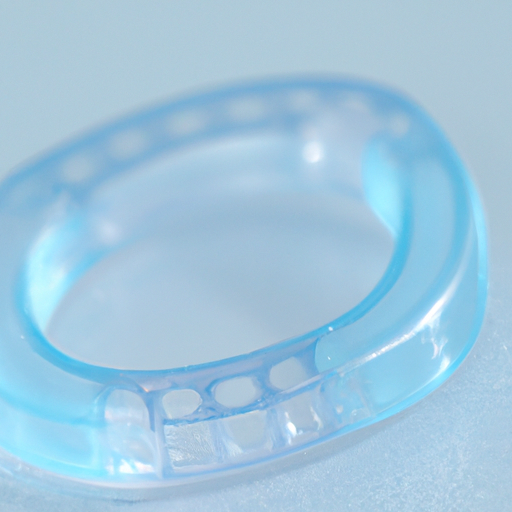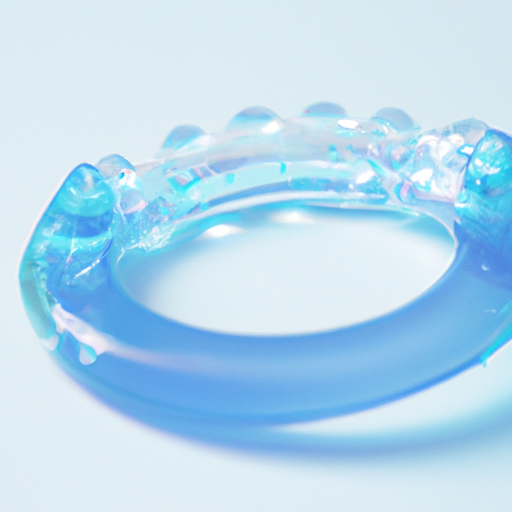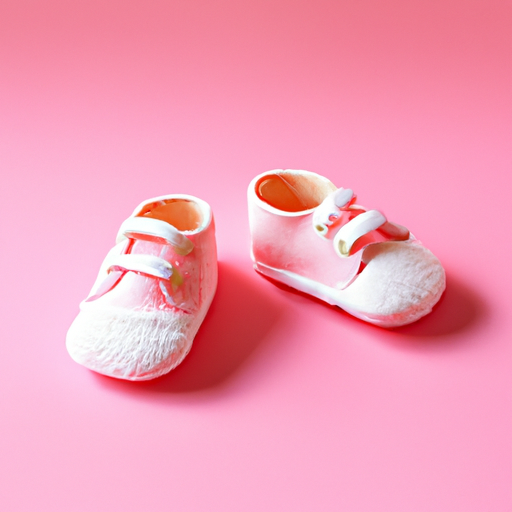Are you a new parent struggling to find ways to ease your baby’s teething discomfort? Don’t worry, we’ve got you covered! In this article, we will explore some effective and safe methods to help soothe your baby during this challenging time. Teething can be a difficult phase for both babies and parents, but with the right techniques, you can provide relief and comfort to your little one. From teething toys to chilled foods, we will discuss a variety of options that you can try to alleviate your baby’s teething discomfort. So, if you’re ready to find some much-needed relief for your little one, keep reading!
Curious to know how you can soothe your baby’s teething discomfort? In this article, we will delve deeper into various strategies and remedies that can provide relief to your little one. You will discover the benefits of using teething toys, how to choose the right ones, and techniques to make them more effective. We will also discuss the use of chilled foods and natural remedies, such as chamomile and clove, to help ease your baby’s discomfort. Additionally, we will provide tips on how to maintain good oral hygiene during the teething phase. So, if you’re looking for practical and safe ways to alleviate your baby’s teething discomfort, stay tuned for more information in this article! Teething can be a challenging time for both babies and their parents. As those first tiny teeth start to emerge, babies often experience discomfort and pain. But fear not, there are several natural remedies and techniques that can help soothe your baby’s teething discomfort. In this article, we will explore different options that include chilled teething toys, cold, wet washcloths, teething biscuits, teething gels, teething tablets, homeopathic remedies such as chamomilla, coffea cruda, and belladonna, pain relief medications like acetaminophen and ibuprofen, distraction techniques such as offering safe toys, playing peek-a-boo, and singing or dancing, comfort measures like gentle massages, cuddling and snuggling, and providing a comfortable environment, dental care tips including the use of soft toothbrushes and gum cleaning, avoiding irritants such as cold or acidic foods and hard chewing toys, and seeking professional advice by consulting a pediatrician or visiting a dentist. So let’s delve into these different options and find the best ways to alleviate your baby’s teething discomfort.
Natural Remedies
Chilled Teething Toys
One effective way to soothe your baby’s teething discomfort is by using chilled teething toys. These toys are specifically designed to be placed in the refrigerator or freezer, providing a cold and numbing sensation when your baby bites on them. The coldness can help reduce inflammation and relieve pain. Make sure to choose toys that are safe for your baby to chew on and follow the manufacturer’s instructions for chilling.
Cold, Wet Washcloth
Another simple and cost-effective remedy is a cold, wet washcloth. Wet the washcloth with cool water and then place it in the refrigerator for a while to chill. Once cold, give it to your baby to chew on. The combination of the coldness and the texture of the cloth can provide relief to your baby’s sore gums. Just make sure to supervise your baby while they chew on the washcloth to avoid any potential choking hazards.
Teething Biscuits
Teething biscuits are specially made for babies who are teething. These biscuits are usually hard and textured, which can help alleviate the discomfort your baby is feeling. As your baby chews on the biscuit, it provides a counterpressure that soothes the gums. It’s important to choose biscuits that are specifically designed for teething and are age-appropriate for your baby. Always keep an eye on your baby while they are munching on these biscuits to prevent choking.
Over-the-counter Options
Teething Gels
Teething gels are a popular choice for many parents when it comes to relieving teething discomfort. These gels contain ingredients such as benzocaine or lidocaine, which can numb the gums temporarily and provide relief. However, it’s important to use teething gels sparingly and according to the product instructions, as excessive use can have adverse effects. Always consult with your pediatrician before using any teething gels on your baby.
Teething Tablets
Teething tablets are another over-the-counter option that many parents find helpful. These tablets usually contain natural ingredients like chamomile and other botanical extracts that are believed to have soothing properties. However, it’s important to note that the FDA has issued warnings against the use of teething tablets containing the ingredient belladonna, as it may be harmful. Always consult with your pediatrician before giving your baby any teething tablets.

Homeopathic Remedies
Chamomilla
Chamomilla is a homeopathic remedy that is commonly recommended for teething discomfort. It is known for its calming properties and can help ease irritability and restlessness in teething babies. Chamomilla can be found in various forms such as teething tablets or drops. Always follow the recommended dosage and consult with a healthcare professional before using any homeopathic remedies.
Coffea Cruda
Coffea cruda is another homeopathic remedy that is believed to help soothe teething discomfort. It is derived from coffee and is often recommended for babies who experience sleep disturbances during teething. Coffea cruda is available in various forms such as pellets or liquid drops. As with any homeopathic remedy, it’s essential to consult with a healthcare professional before using it on your baby.
Belladonna
Belladonna is a controversial homeopathic remedy that has been traditionally used for teething discomfort. However, it’s important to note that the FDA has issued warnings against the use of teething products containing belladonna, as they may be harmful to babies. It’s always best to consult with your pediatrician before considering the use of any homeopathic remedies for your baby.
Pain Relief Medications
Acetaminophen
If your baby is experiencing severe teething discomfort, your pediatrician may recommend the use of acetaminophen as a pain relief medication. Acetaminophen can help reduce inflammation and alleviate pain. However, it’s crucial to follow the recommended dosage and consult with your pediatrician before administering any medication to your baby.
Ibuprofen
Ibuprofen is another pain relief medication that can be used for teething discomfort. It works by reducing inflammation and alleviating pain. However, ibuprofen should only be used for babies who are six months or older. Always consult with your pediatrician to determine the appropriate dosage and whether ibuprofen is suitable for your baby.

Distraction Techniques
Offering Safe Toys
One effective way to distract your baby from teething discomfort is by offering safe toys to chew on. Choose toys that are specifically designed for teething babies, with different textures and shapes. This can help redirect your baby’s attention and provide relief from the discomfort they are experiencing. Make sure the toys are safe and age-appropriate for your baby.
Playing Peek-a-Boo
Playing peek-a-boo with your baby can be a fun and effective distraction technique during teething. The simple act of hiding and revealing your face can engage your baby’s attention and temporarily take their mind off the discomfort. Peek-a-boo also promotes bonding and interaction between you and your baby, creating a positive and comforting environment.
Singing or Dancing
Another way to distract your baby from teething discomfort is by singing or dancing with them. Music and movement can grab your baby’s attention and provide a soothing and fun experience. You can sing nursery rhymes or play their favorite songs while gently swaying or dancing with them. This can help alleviate their discomfort and create a positive distraction.
Comfort Measures
Gentle Massages
Gentle massages can be very comforting and soothing for teething babies. Using clean hands or a clean washcloth, apply gentle pressure on your baby’s gums in a circular motion. This can help relieve some of the teething discomfort your baby is experiencing. Always be gentle and make sure your hands are clean to avoid any infections or further irritation.
Cuddling and Snuggling
Cuddling and snuggling with your baby can provide immense comfort during teething. The warmth and security of your embrace can help ease their discomfort and make them feel safe. Hold your baby close, cuddle on the couch, or rock them gently in your arms. Physical contact and affection can go a long way in soothing your baby’s teething woes.
Providing a Comfortable Environment
Creating a comfortable environment is essential for soothing your baby’s teething discomfort. Make sure the room temperature is pleasant, neither too hot nor too cold. Dress your baby in comfortable clothing that doesn’t irritate their skin. Provide a calm and quiet atmosphere, minimizing any distractions or loud noises. These simple steps can help your baby feel more relaxed and at ease during teething.
Dental Care
Use of Soft Toothbrushes
Even before your baby’s first teeth fully emerge, it’s important to start practicing good dental care habits. Gently clean your baby’s gums using a soft toothbrush or a clean, damp washcloth. This helps remove any bacteria or food particles that may accumulate. As your baby’s teeth start to come in, switch to a baby-sized toothbrush with soft bristles. Remember to clean their teeth twice a day.
Gum Cleaning
Cleaning your baby’s gums is just as important as cleaning their emerging teeth. Use a clean, damp washcloth or a gauze pad to gently wipe their gums after feedings. This helps remove any residue or bacteria and keeps their gums healthy. Establishing a gum cleaning routine early on helps promote good dental hygiene habits.
Avoiding Irritants
Cold or Acidic Foods
During the teething period, it’s best to avoid giving your baby cold or acidic foods. Cold foods can further irritate their already sensitive gums, while acidic foods can cause discomfort and potentially worsen any existing teething pain. Stick to soft, cool foods that are gentle on your baby’s gums, such as pureed fruits and vegetables or yogurt.
Hard Chewing Toys
While it may be tempting to provide hard chewing toys for your baby during teething, it’s important to choose these toys with caution. Hard toys can potentially cause more harm than good, as they can be too harsh on your baby’s sore gums. Opt for softer teething toys that are specifically designed for babies, ensuring they are safe and age-appropriate.
Seeking Professional Advice
Consulting a Pediatrician
If your baby’s teething discomfort seems particularly severe or prolonged, it’s important to seek professional advice from your pediatrician. They can assess your baby’s specific situation and offer personalized recommendations and guidance. Your pediatrician may also be able to provide additional suggestions or prescribe specific teething remedies or pain relief medications if needed.
Visiting a Dentist
While it may seem early, scheduling a visit to the dentist during your baby’s teething period can be beneficial. The dentist can evaluate your baby’s oral health, check for any emerging teeth, and provide guidance on proper dental care for your little one. Starting dental visits early can help establish a positive relationship with the dentist and ensure your baby’s dental health is on track.
Conclusion
Teething discomfort is a natural part of your baby’s development, but there are many ways to help alleviate their pain and discomfort. From natural remedies like chilled teething toys, cold, wet washcloths, and teething biscuits to over-the-counter options such as teething gels and teething tablets, there are various methods you can try. Homeopathic remedies like chamomilla, coffea cruda, and belladonna may also offer relief, but it’s essential to consult with a healthcare professional before using them. Pain relief medications like acetaminophen and ibuprofen can be used if recommended by your pediatrician. Distraction techniques, comfort measures, good dental care practices, and avoiding irritants can also make a difference. Lastly, seeking professional advice from a pediatrician or dentist can provide tailored recommendations for your baby’s specific needs. Remember, every baby is unique, so it may take some trial and error to find the right combination of remedies and techniques that work best for your little one.





